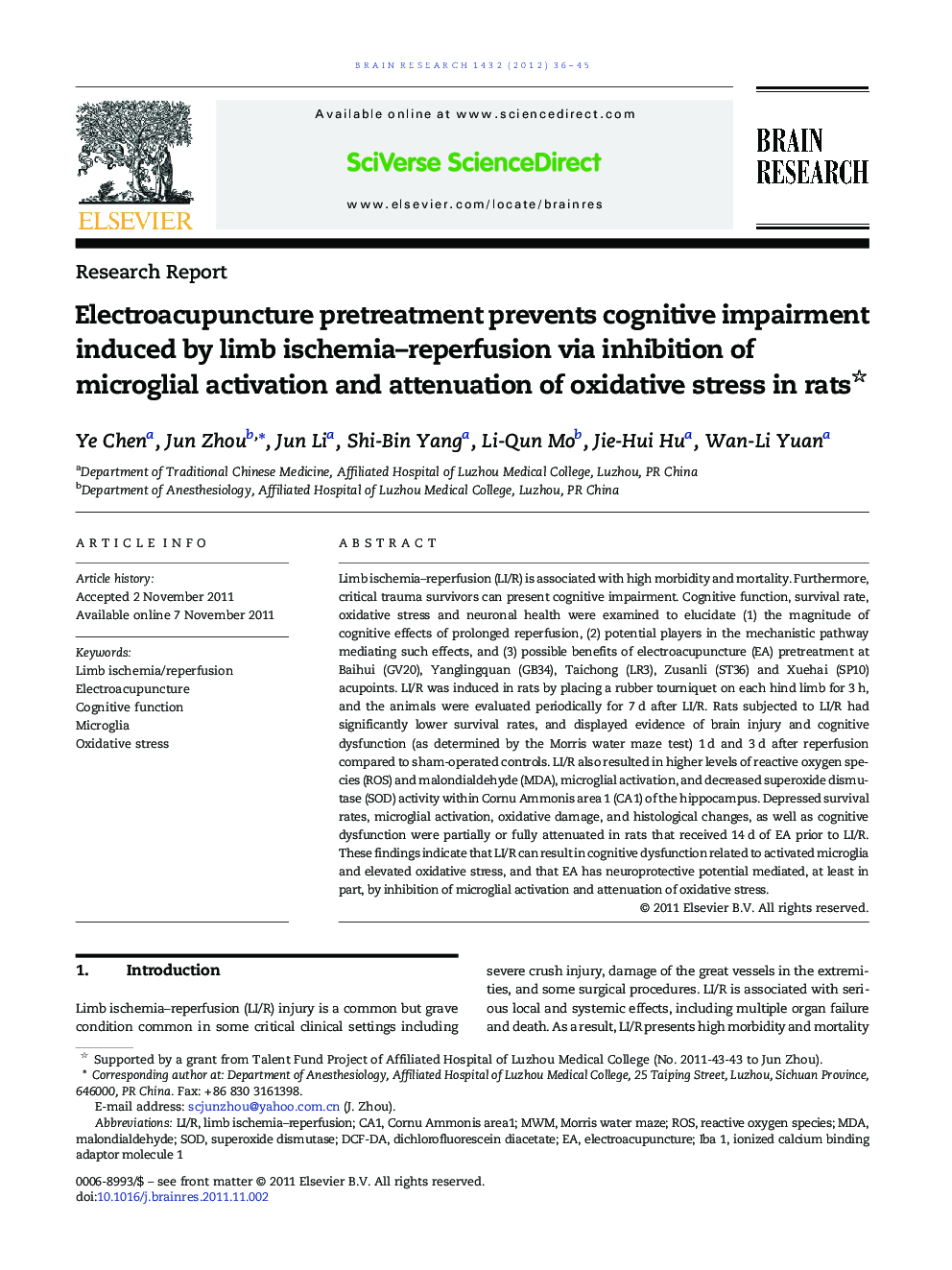| Article ID | Journal | Published Year | Pages | File Type |
|---|---|---|---|---|
| 4325517 | Brain Research | 2012 | 10 Pages |
Limb ischemia–reperfusion (LI/R) is associated with high morbidity and mortality. Furthermore, critical trauma survivors can present cognitive impairment. Cognitive function, survival rate, oxidative stress and neuronal health were examined to elucidate (1) the magnitude of cognitive effects of prolonged reperfusion, (2) potential players in the mechanistic pathway mediating such effects, and (3) possible benefits of electroacupuncture (EA) pretreatment at Baihui (GV20), Yanglingquan (GB34), Taichong (LR3), Zusanli (ST36) and Xuehai (SP10) acupoints. LI/R was induced in rats by placing a rubber tourniquet on each hind limb for 3 h, and the animals were evaluated periodically for 7 d after LI/R. Rats subjected to LI/R had significantly lower survival rates, and displayed evidence of brain injury and cognitive dysfunction (as determined by the Morris water maze test) 1 d and 3 d after reperfusion compared to sham-operated controls. LI/R also resulted in higher levels of reactive oxygen species (ROS) and malondialdehyde (MDA), microglial activation, and decreased superoxide dismutase (SOD) activity within Cornu Ammonis area 1 (CA1) of the hippocampus. Depressed survival rates, microglial activation, oxidative damage, and histological changes, as well as cognitive dysfunction were partially or fully attenuated in rats that received 14 d of EA prior to LI/R. These findings indicate that LI/R can result in cognitive dysfunction related to activated microglia and elevated oxidative stress, and that EA has neuroprotective potential mediated, at least in part, by inhibition of microglial activation and attenuation of oxidative stress.
► Limb ischemia-reperfusion induces poor survival rates and cognitive dysfunction. ► The above-mentioned changes involve microglial activation and oxidative stress. ► EA improves those changes by inhibiting activated microglia and oxidative stress.
